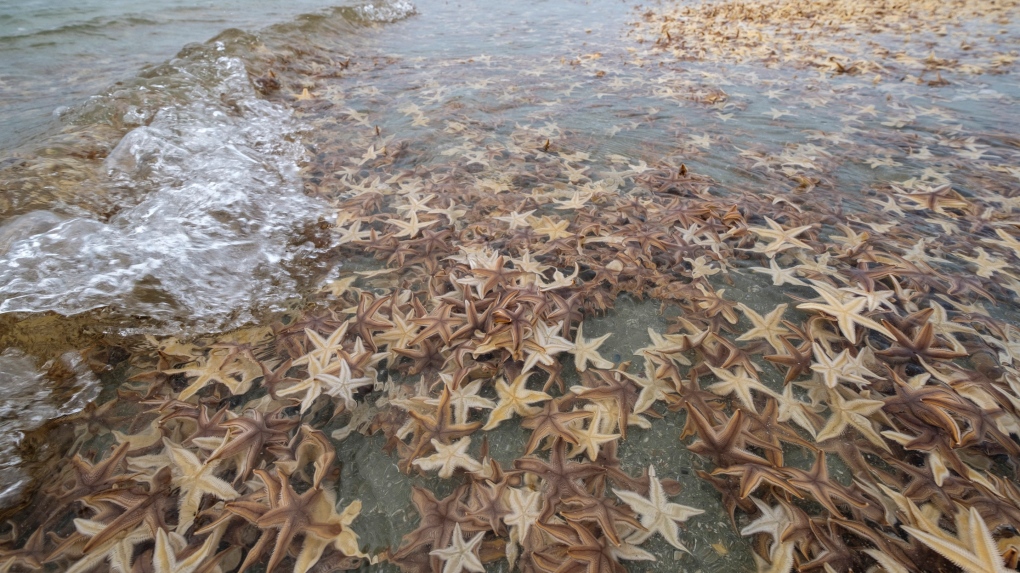On the Arctic sea floor lie hungry predators that can eat dead polar bears.
The voracious carnivores are seastars, better known as starfish, and a new study by a national research group says they tie with polar bears as the top predators of the Arctic marine ecosystem.
Co-author Remi Amiraux, a post-doctoral fellow at the University of Manitoba, said sea floor, or benthic, organisms are not commonly studied because they are often assumed to be lower on the food chain.
But the study published last month in the Proceedings of the National Academy of Sciences found that the ocean floor includes organisms across the whole range of the food chain.
Seastars within the Pterasteridae family sat at the top, with the study dubbing them "the benthic equivalent to polar bears."
"It’s a shift in our view of how the coastal Arctic marine food web works," Amiraux said in an interview.
He said that invertebrates, or creatures without backbones, living in sediment on the Arctic sea floor did not just consist of plant-eating herbivores.
"You have a whole food web, including primary predators, herbivores and many carnivores. So it's way more complex than what we thought," Amiraux said.
The study's authors say "megafaunal-predatory" Pterasteridae seastars thrive in this realm "because of their evolved defence mechanism associated with a diet of other predators, including marine mammal carcasses that settle onto the ocean floor."
Amiraux said that while polar bears do not consume starfish, "the opposite is quite true."
"Actually, when a polar bear dies, it can be eaten by carnivore seastars," Amiraux said.
The researchers examined 1,580 samples from wildlife around Nunavut's Southampton Island in Hudson Bay to understand how the ecosystem functions and help governing bodies protect and conserve marine life in the area.
The Southampton Island region has been identified as an area of interest for Marine Protected Area designation by Fisheries and Oceans Canada.
Amiraux said food webs provide insight into ecosystem functioning.
He noted that though the study focused on an area in the Arctic, starfish are found worldwide, so it is likely that "there is the same structure or the same food web everywhere on the sea floor."
"I don't think it's a special feature of the coastal environment," he said. "We pretty much will be able to see that in all environments."
This report by The Canadian Press was first published Jan. 28, 2023.












































